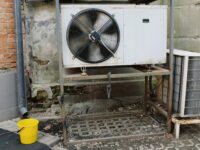Heating systems are an important part of any home. Not only do they help us stay toasty in the winter, but insulation also saves us cash on our energy costs. In fact, some households are able to utilize a VEU Heating Rebate installer Melbourne service, where it allows residents to upgrade their systems and receive a rebate due to making energy efficient improvements. This may be different in some locations, so it is worth it to take a look. There are a variety of different heating systems available, and it can be difficult to decide which one is right for your home. In this blog post, we will discuss six useful facts about heating systems that will help you make the right decision for your needs!
Understanding Home Heating Systems – 6 Useful Facts To Know
Home heating consists of a variety of components, and each has its own purpose. Knowing these components and how they work together can help you make informed decisions about your home’s heating system. Understanding what a convection heating system is and learning about the differences between gas and electric systems, the extensive knowledge of home heating systems can be overwhelming. To help you out, here are six useful facts about home heating systems that will make the decision process a lot easier:
1. Central Heating Systems
Central heating systems use a boiler or furnace to heat air and move it throughout your home via ductwork. These systems can be powered by electricity, natural gas, oil, or propane. This type of system is often the most cost-effective option, as it utilizes fewer individual components and can be controlled with a single thermostat.
2. Heat Pumps
Heat pumps are an energy-efficient way to keep your home warm in winter and cool in the summer. The system takes heat from one area and circulates it into another area, using less energy than other heating systems. Furthermore, heat pumps are quieter and require less maintenance than other systems.
3. Radiant Heating Systems
Radiant heating systems warm your home from the floor up, rather than from the ceiling down. These systems consist of either hot water or electric cables that heat the floors and walls throughout your house for even temperature distribution. This is a great option for those looking for energy efficiency and comfort.
4. Furnace Types
Furnaces come in a variety of types, including gas, electric, oil, and propane models. Depending on your home’s layout and size, one type may be more cost-effective than the other. Additionally, it is important to consider the model’s age, efficiency rating, and installation cost.
5. Zone Systems
Zone systems allow you to customize the temperature in different parts of your home. With this type of system, each room can have its own thermostat and be set to a different temperature for maximum comfort. This is perfect for large homes with multiple levels or family members that prefer different temperatures.
6. Maintenance
No matter what type of heating system you have, regular maintenance is essential for optimal performance and efficiency. Make sure to change filters regularly, schedule an annual check-up with a professional HVAC technician, and keep the area around your unit free of debris.
These are just some of the facts you should know about home heating systems before making a decision. Knowing the components of your system, the type of fuel it uses, and how to maintain it will help ensure that your home stays warm and energy efficient all winter long. Educating yourself on these topics is essential for making the right choice for your family’s needs.
















